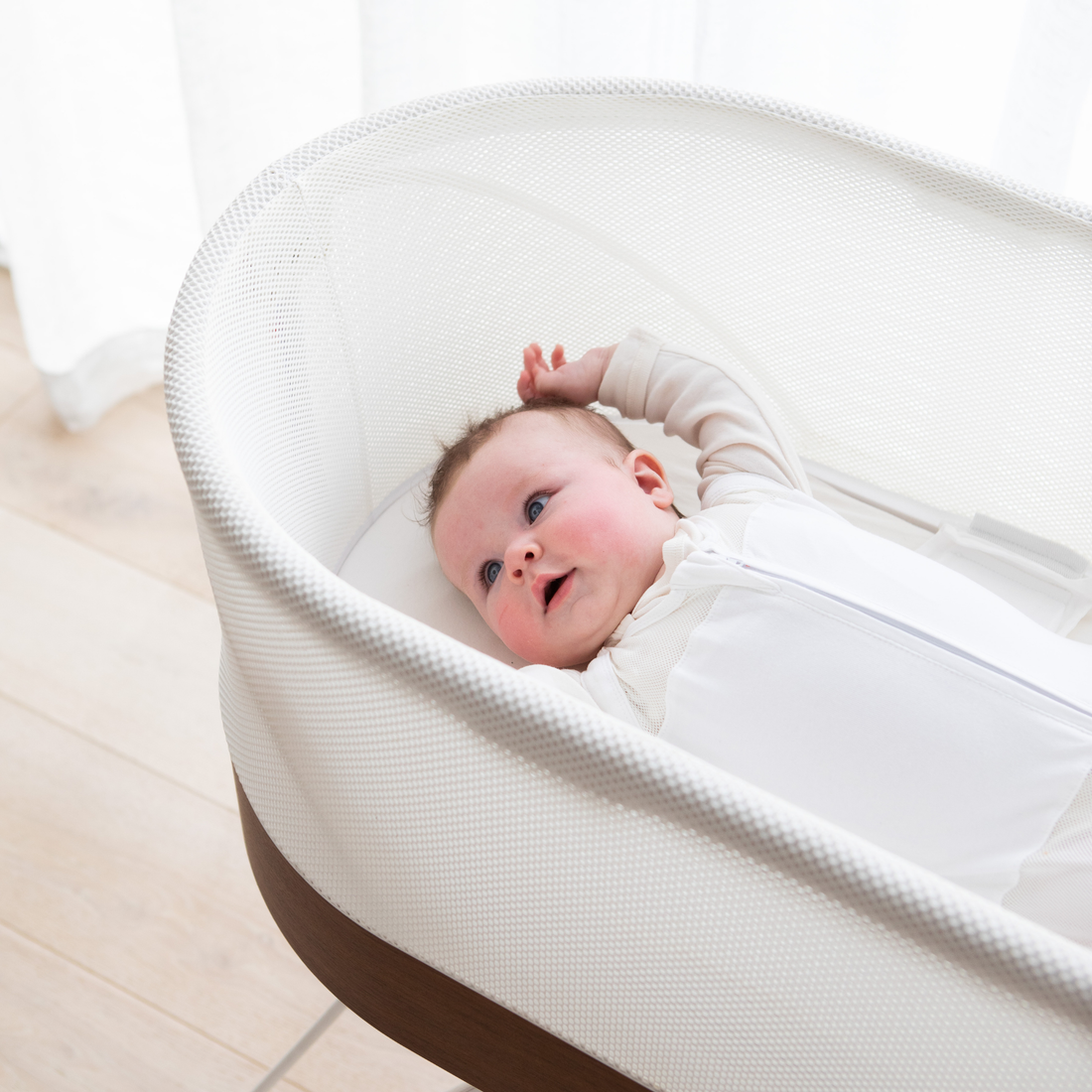

How to plan, deal and get back to good nights.
Infant sleep is hard enough to plan for without something like daylight savings to make it even tougher. Pending early wakes, bedtime struggles can make any parent feel anxious, but a bit of advice can make it feel much more manageable. Here, our best advice on getting through the clocks rolling back with tips from midwife and certified toddler and baby sleep consultant Bianca Burge of Plan B Sleep Consulting.
Not For Newborns
First thing to note, fresh newborns (under three months) aren’t going to be affected by daylight savings beginning or ending because they don’t have a set routine. They’ll need lots of naps and comfort regardless of what’s happening with the clock.
A Good Night Routine
“The main routine I focus on is dinner, bath, book, bed,” says Bianca. “A structured routine that happens each night will encourage predictability, which children thrive on. Performing a wind-down is really important as well as it prompts children to what is about to happen.”
Extra Helpers
“Although the evenings will be darker, the mornings will be lighter and we want to avoid those early wakes, so I would suggest investing in some block out blinds as light also suppresses melatonin production,” says Bianca. She also suggests white noise, “It’s great for turning on the calming reflex, but also blocks any early morning stimulation such as birds or parents leaving for work.”
Start Slow
It may be helpful to start the later bedtimes by starting the process 5 days before the end of daylight savings and moving their schedule back in 15 minute increments each day. This means wake-up, meals and bedtime all happens 15 minutes later than the day before so that on daylights savings end day (April 5), they are adjusted and ready for the new routine. If you're doing this process, make sure all your child's carers are aware and onboard.





































































































